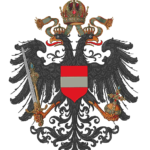To me, the Japanese language is fantastically frustrating and frustratingly fantastic. Especially their loan words, which are almost always written in Katakana, can be a challenge. This is mostly because the Katakana give no indication as to the origin of the word. It could be an English word spelled correctly (as far as this is possible in a syllabary) or a French word written phonetically. The fact that many of these words are abbreviated doesn’t really help either. And on top of that: false friends – words imported from some other language that took on a completely new meaning in the process.
 The following is an interesting example of this. My Japanese teacher, whom I meet once a week likes to wear hats. His summer attire is a real Panama hat made from straw; he got it from his brother-in-law who once went on a trip to South America. Anyway, this week he pointed to a pin at his hat, and this is the conversation that followed:
The following is an interesting example of this. My Japanese teacher, whom I meet once a week likes to wear hats. His summer attire is a real Panama hat made from straw; he got it from his brother-in-law who once went on a trip to South America. Anyway, this week he pointed to a pin at his hat, and this is the conversation that followed:
“What is this called in English?
“A pin”, I said.
“Not a badge? That’s what we say in Japanese.”
“No, a badge is made from cloth and is sewn onto clothing.”
“Oh, in Japan, that’s called a Wappen.”
I laughed: “Wappen is actually German, and it means the crest of a noble family.”
“In Japanese, that would be called a mon.”
I rest my case.
